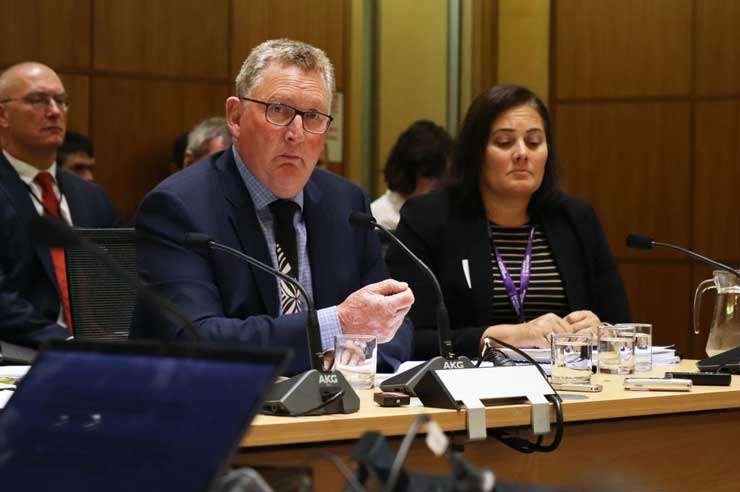Buyers need to prepare for interest rate hikes next year along with harder to please banks, and sellers may need to accept prices are unlikely to rise the way they have over the last 18 months, experts say.
Gareth Kiernan, chief forecaster for Infometrics, pins interest rates as one of two big areas to watch with the Reserve Bank forecasting rates will lift through next year.
That might not squeeze people who already own property but increases will make it harder for people coming into the market to service a mortgage given the house price hikes seen since Covid arrived.
“That's only going to get more difficult through the course of next year.
Start your property search
“It's either going to squeeze more buyers out of the market or it is certainly going to put a cap on the prices that people are able and willing to pay.”
Assuming people keep their jobs and incomes, recent new owners should be able to continue to service the mortgage, however, because banks have been building much higher rates of 6 per cent into their lending equations, which is well over the record low mortgage rate of 2.2 per cent, Kiernan says.
“I think people's discretionary spending will start to get threatened but the commitment of continuing to pay the mortgage shouldn't be an issue.”
But while he doesn’t think prices are likely to drop, sellers might find prices don’t go any higher.
That’s good for buyers but also on Kiernan’s radar is debt-to-income restrictions (DTIs) which some banks are already instigating.

Infometrics chief forecaster Gareth Kiernan: “[It’s] only going to get more difficult.” Photo / John Stone
The Reserve Bank is consulting on DTIs and Kiernan expects them to be formally introduced in some form next year.
“It's a question of how restrictive those are.”
Some countries using them have brought in between 3.5 to 5 times income lending limits but New Zealand’s ratios are much higher and those lower limits would knock out about half of all lending, Kiernan says.
“It’s going to have to be at a relatively higher ratio.
“You add up that factor on top of the LVR restrictions and the changes that investors have faced and we have already seen some drop off in buyer demand.
“It's not massive and it's been hidden a little bit by the fact there’s still a limited supply of properties actually available to buy out there.”
DTIs could reduce the potential pool of buyers further leading to an increase in the number of properties available but that’s more a recipe for stabilisation of prices rather than falls, he says.
Rupert Gough, owner of mortgage company The Mortgage Lab, says his best advice to would-be buyers is to control their expenses in the three months prior to applying for a loan.

Reserve Bank Governor Adrian Orr. The Bank is weighing up introducing debt to income ratios. Photo / Getty Images
“That’s the new thing. Where it used to be you could promise that in the future you will be good with your money now it's ‘what have you done in the past three months?
“I think that's the big mindset shift New Zealand is going to have to go through.”
While Gough also points to increasing interest rates, and says it’s already harder to get a low deposit loan of under 20 percent, his big message is around controlling expenses for that three month period.
“That is really kicking some people who are otherwise really good applicants at the moment.”
Banks are going through statements looking for reasons to turn applicants down, he says.
“It’s Uber Eats, the kind of buy-now-pay later-things, if you've got a couple of TV subscriptions you may want to limit that down, and all those things will have quite a material effect on your ability to borrow.”
Unusual cash withdrawals will also be scrutinised, Gough says.
“Some people get out cash to control their spending - they get out $200 and once that's spent there's no more money - which is fine but you are going to have to be able to account for that.”
Budgeting for interest rate rises is also wise because a rise to five per cent means finding another $15,000 a year or $300 a week for a $1m mortgage.

Experts say mortgage applicants will have to rein their spending on discretionary items such as Netflix and Uber Eats. Photo / Getty Images
“Of course, you have to pay tax on the income you earn so it's probably 20 grand more that you have to earn.”
Financial strategist Hannah McQueen, founder of EnableMe, says rising interest rates have been well-signalled so for those who have factored them in there’s no need to panic.
“However, if you have struggled to get ahead when interest rates are low then you are going to find yourself backed into a corner with stress levels soon to increase.
“Best you get a financial plan in place to get ahead of this, and ideally start paying down your debt faster before your current interest rate expires.”
Whether people are buying or selling, higher interest rates have the potential to have an impact as they change the affordability calculations of what people can spend and thus what sellers can expect to get, McQueen says.
‘Practically, it would make sense to sell your property sooner while interest rates are lower, to allow you to fetch a higher price.”

EnableMe Founder Hannah McQueen advises buyers not to over-stretch themselves. Photo / Doug Sherring
She thinks the rise in interest rates will dampen the pace of house price rises and says that’s not a bad thing given the increases of the past two years are “clearly unsustainable”.
But McQueen, too, warns banks are harder to please.
“The legislation that requires the banks to do much more due diligence on affordability has seen them comb through would-be borrowers’ spending habits like never before.
“For a long time as long as you earned sufficient income borrowing wasn’t a problem – but that is no longer the case.”
She also had warnings for those in older age brackets, saying banks were lending less to them.
“People in their mid-to-late 50s, who might have previously qualified for borrowing, will find themselves not able to secure the same levels of borrowing or with much less favourable lending terms.
“This is going to impact their ability to borrow from a mainstream bank. There are some work arounds to this, but it’s something I’d suggest it’s worth working through with a financial advisor.”
McQueen’s best advice for people wanting to buy is to make sure they buy well because regardless of what the market is doing it’s always a bad time to “buy a lemon” and it’s always a bad time to overstretch yourself financially.
“The criteria for buying well is different depending on whether you’re buying a home or an investment and the problem you are trying to solve – ie, is this a strategy to address a retirement savings shortfall, or something else?
“I would seldom consider a home part of your investment portfolio, even if it does increase in value over time.”











































































